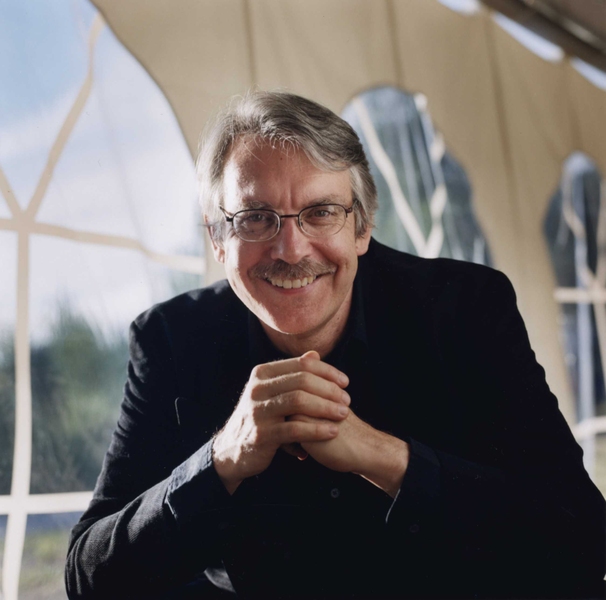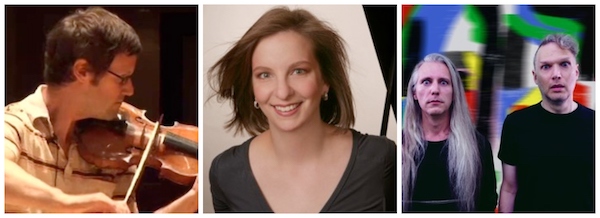by Jarrett Hoffman
IN THIS EDITION:
•Concerts this evening from The Cleveland Orchestra, Oberlin faculty, Youngstown Symphony, and No Exit
•News briefs: Bop Stop trumpeters, Severance safety policy
•In the industry: arts organizations reconsidering their COVID rules, and heading to court to receive relief funds
•Almanac: John Harbison on writing for orchestra
HAPPENING TODAY:
If you’re the indecisive type, this evening might be difficult for you.
There’s the first of three Cleveland Orchestra concerts featuring violinist Peter Otto as soloist in the Walton Concerto.
There’s an Oberlin faculty recital devoted to the Schubert Octet for winds and strings (both in-person and streamed).
There’s a Youngstown Symphony program with pianist Orli Shaham in the Schumann Concerto.
And there’s a concert presented by No Exit which delves into a sense of the uncanny valley in music for piano and electronics from David Friend and Jerome Begin.
Find details in our Concert Listings, and take in the stories behind the music in Mike Telin’s conversations with Otto, Shaham, and Friend & Begin.
NEWS BRIEFS:
After tonight’s visit by David Friend and Jerome Begin, you might say there’s a theme running through the upcoming schedule at the Bop Stop: to quote Lou Bega in Mambo No. 5, “send in the trumpet.” On March 11 you can hear trumpeter John Daversa in recital with pianist Tal Cohen. March 20 brings the TREFOIL ensemble including Ambrose Akinmusire, and the 22nd brings a group featuring Eddie Henderson. See the venue’s schedule here.
One note pertaining to the Cleveland Orchestra concert mentioned above: starting today, proof of vaccination is no longer mandatory at Severance Music Center, though masks are required. Read the full, updated safety policy here.
IN THE INDUSTRY:
Speaking of which — Matt Stevens of The New York Times checks in on the status of COVID rules at arts organizations around the country as cities and states ease their own restrictions. The situation is different depending on the artistic medium — museums allow for social distancing more easily than concert halls, for example — but in general, there is pressure coming from both sides. “No matter what decision you make,” said LA Opera president Christopher Koelsch, “there are people who are going to be upset with you and believe that you are making the wrong decision.” Read the article here.
On another stress-free topic related to the pandemic — arts funding — Margo Vansynghel writes in an article for Seattle-based Crosscut that organizations “are taking the Small Business Administration to court after being denied funds from a federal relief program for arts venues.”

One of the important early works of John Harbison — the Pulitzer Prize- and MacArthur Fellowship-winning composer who taught at the Massachusetts Institute of Technology for 52 years — is Diotima, commissioned by the Koussevitzky Foundation and premiered on this date in 1977 by the Boston Symphony under the direction of Joseph Silverstein.
But the piece was not recorded until November 2021, one month prior to Harbison’s retirement from MIT right around his 83rd birthday.
This new album (also titled Diotima), as Harbison writes, spans his “first and likely last music for orchestra, written over forty years apart,” and recorded by the Boston Modern Orchestra Project and conductor Gil Rose.
The work has an interesting backstory, inspired by the writings of German Romantic poet and philosopher Friedrich Hölderlin. But zooming out, Harbison has also shared fascinating thoughts on writing for orchestra in general — which he says is one of the most challenging “regions” for a composer:
The hardest thing about the full orchestra sound is to individualize it every time. That’s always been what’s interested me. Every full orchestra moment in a Stravinsky piece, for instance, is cockeyed and working very hard not to be generic. I think the listener to these pieces will find one common thing, which is, something’s always missing, or not functioning on all the cylinders we expect from our most familiar encounter with the orchestra — the Hollywood film, which has conditioned the ears of virtually everyone who hears a full orchestra today.
And in the liner notes, Harbison describes the sense of possibility that orchestra offers:
In the world of orchestra music, composer, players and conductor journey together toward something none of them can fully imagine until it happens.
Listen to the album here. For tributes to Pablo de Sarasate, Arthur Honegger, Carl Reinecke, read last year’s almanac here.




